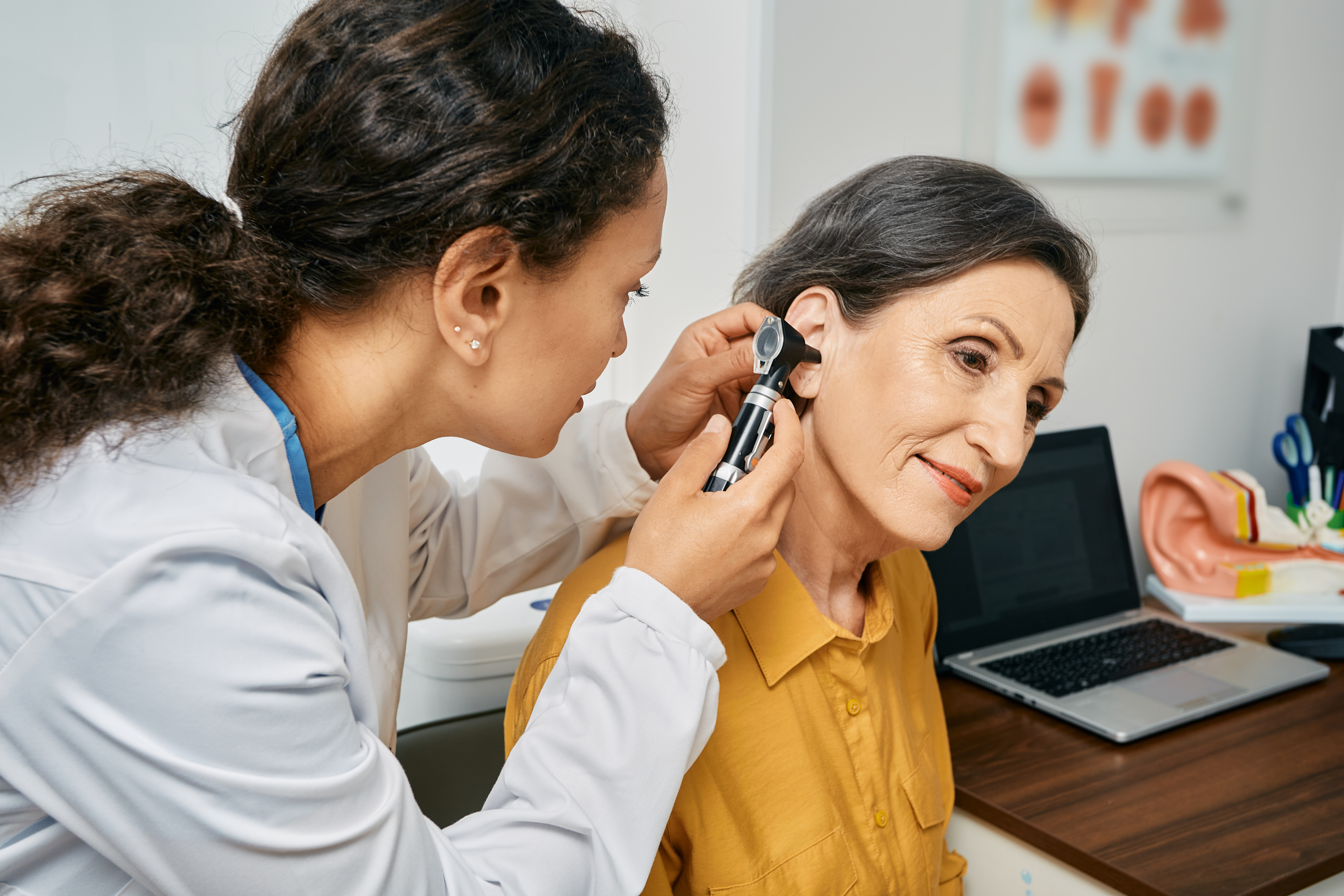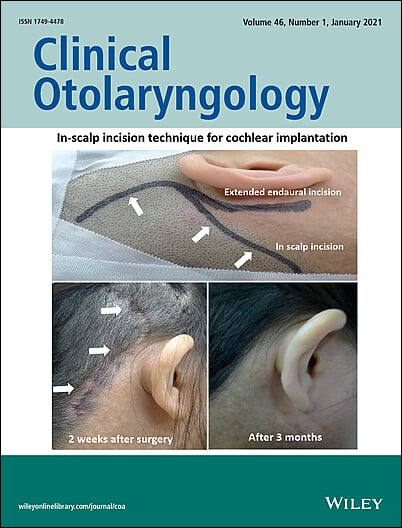Frustrated with Sinus Pain? Here's When to Call a Sinus ENT
Wiki Article
Discovering the Field of Otolaryngology: What to Expect When You Speak With an ENT
Otolaryngology, frequently referred to as ENT, encompasses the diagnosis and treatment of throat, nose, and ear conditions. For those experiencing related issues, getting in touch with an ENT specialist can offer clarity and alleviation. Understanding what to expect during such assessments is important for efficient communication and care. This summary will certainly describe vital aspects of the ENT experience, consisting of common factors for visits and the processes included in diagnosis and treatment.
Comprehending Otolaryngology: An Overview
Otolaryngology, typically referred to as ENT (Ear, Nose, and Throat) medicine, is a specific branch of medicine that concentrates on the medical diagnosis and therapy of problems impacting these crucial areas of the body. This area encompasses a wide variety of problems, consisting of those pertaining to hearing, equilibrium, respiratory feature, and speech. Otolaryngologists are educated to manage both medical and medical therapies, utilizing innovative methods and technologies. Their knowledge prolongs beyond conventional ailments, dealing with issues such as allergies, sinus infections, and hearing loss. Additionally, they play a critical duty in the administration of head and neck cancers, giving comprehensive care tailored to specific patient demands. Generally, otolaryngology remains necessary for keeping health and wellness and high quality of life in afflicted people.Common Factors to See an ENT Specialist
Lots of individuals look for the proficiency of an ENT professional for a variety of reasons, showing the varied nature of conditions that influence the nose, ear, and throat. Typical concerns consist of persistent sinus problems, which often brings about persistent nasal congestion and face pain. Allergies and their connected signs and symptoms, such as itching and sneezing, likewise trigger sees to these experts (Voice). Hearing loss, whether steady or sudden, is one more significant reason for examination. Additionally, people might seek assessment for throat conditions, consisting of relentless hoarseness or ingesting troubles. Rest apnea, defined by disturbed breathing throughout rest, is often dealt with by ENT specialists too. Each of these conditions highlights the relevance of specialized care in managing complicated ENT-related health problems
Preparing for Your ENT Appointment
When getting ready for an ENT consultation, it is necessary to collect relevant info and consider any kind of particular problems. People need to put together an in-depth case history, including previous ear, nose, or throat concerns, surgical procedures, and present medications. Documenting signs-- such as frequency, extent, and period-- can give valuable understandings for the ENT professional. Furthermore, people ought to prepare a listing of questions they want to ask, guaranteeing that all worries are addressed during the see. Bringing along any kind of relevant medical documents or examination results can further aid the ENT in recognizing the patient's problem. Ultimately, clients ought to validate their consultation information, consisting of day, time, and area, to lessen any type of last-minute confusion. Appropriate prep work can improve the performance of the consultation and cause better results.What to Expect During the Consultation
As the examination starts, the client can expect to take part in an extensive conversation with the ENT expert regarding their symptoms and medical background. The expert will ask concerning the duration, regularity, and extent of signs and symptoms such as hearing loss, nasal congestion, or sore throat. Additionally, the patient's previous medical problems, medicines, and any appropriate family members history will be evaluated, assisting the expert in developing a total understanding of the person's health and wellness. The ENT might additionally inquire about way of read more life aspects, such as exposure to irritants or allergens. This open discussion develops a foundation for the examination, guaranteeing that the patient's concerns are resolved and establishing the stage for any essential assessments or suggestions for treatment.
Analysis Tests and Treatments in Otolaryngology
A series of diagnostic tests and procedures are vital in otolaryngology to precisely assess and diagnose conditions influencing the ear, nose, and throat. Common examinations consist of audiometry, which determines hearing feature, and tympanometry, evaluating center ear stress. Nasal endoscopy enables visualization of the nasal flows and sinuses, while laryngoscopy takes a look at the throat and singing cables. Imaging techniques, such as CT scans and MRIs, provide comprehensive sights of head and neck frameworks. Allergic reaction testing might additionally be carried out to determine triggers for sinus or respiratory system problems. These analysis devices enable ENT specialists to create a thorough understanding of people' problems, guaranteeing tailored and reliable management strategies. Appropriate diagnosis is important for effective treatment outcomes in otolaryngology.Therapy Options Provided by ENT Specialists
ENT specialists offer a variety of therapy alternatives tailored to resolve certain problems influencing the ear, throat, and nose. These therapies range from traditional methods, such as medication and way of life modifications, to even more intrusive procedures. Allergies may be managed with antihistamines or immunotherapy, while chronic sinus problems may call for nasal corticosteroids or sinus surgical treatment. For hearing loss, ENT specialists typically advise listening device or surgical treatments like cochlear implants. In cases of throat conditions, options can include speech therapy or medical procedures to get rid of blockages. In addition, they might provide support for managing sleep apnea, consisting of making use of CPAP devices or medical treatments. In general, the goal is to enhance people' lifestyle with personalized treatment and reliable therapy approaches.When to Seek Follow-Up Treatment With an ENT
Identifying when to seek follow-up care with an ENT specialist is crucial for taking care of continuous signs or complications connected to nose, ear, and throat problems. People should consider setting up a follow-up visit if symptoms linger in spite of first treatment, such as persistent ear discomfort, nasal blockage, or throat discomfort. Adjustments in hearing, balance concerns, or unusual nasal discharge might additionally require additional assessment. Additionally, if a person experiences negative effects from prescribed drugs or has undertaken a procedure, follow-up care is essential to keep track of recovery and deal with any concerns. Timely appointments can ensure efficient monitoring of conditions, stop potential issues, and provide tranquility of mind relating to one's health and wellness. Seeking follow-up treatment promotes positive wellness management in otolaryngology.Often Asked Questions

What Certifications Should I Look for in an ENT Professional?
When seeking an ENT specialist, one need to search for board certification, appropriate experience, and solid patient reviews. In addition, effective interaction skills and a caring strategy can significantly boost the total treatment experience.How Do I Select the Right ENT for My Demands?
Selecting the appropriate ENT specialist includes assessing their credentials, experience, and person reviews (ENT). It is important to consider their communication style and method to therapy, ensuring they align with the individual's specific health requirements and preferencesAre There Any Dangers Connected With ENT Procedures?
The risks related to ENT treatments might include infection, blood loss, anesthesia issues, and prospective damage to bordering frameworks. Individuals ought to go over these risks with their doctor to understand specific problems and guarantee informed decisions.How Can I Take Care Of Stress And Anxiety Prior To My ENT Appointment?
To manage anxiety before a visit, people can practice deep breathing workouts, envision positive end results, prepare questions ahead of time, and look for support from friends or household, cultivating a feeling of peace of mind and peace.What Should I Do if I Experience Negative Effects From Treatment?
The person needs to promptly report them to their medical care company if side impacts from treatment take place. Modifications to treatment or extra interventions may be required to guarantee safety and efficiency in managing their problem - Hearing. As the consultation starts, the individual can expect to involve in a comprehensive conversation with the ENT professional about their signs and symptoms and medical background. These analysis tools allow ENT specialists to establish an extensive understanding of individuals' conditions, guaranteeing tailored and reliable monitoring strategies. ENT professionals provide a selection of therapy options customized to deal with particular conditions impacting the throat, ear, and nose. When looking for an ENT professional, one need to look for board certification, relevant experience, and strong person evaluations. Picking the right ENT professional entails evaluating their certifications, experience, and individual evaluationsReport this wiki page